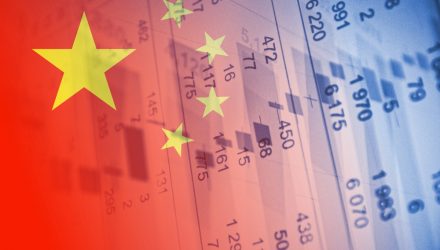A Goldman Sachs report noted “aggressive” selling in Chinese equities by hedge funds, citing concerns over the second-largest economy’s growth trajectory.
It appears China still has yet to shake off the effects of a real estate development crisis that came to the forefront when the Evergrande Crisis hit, resulting in an $81 billion loss. Since then, China’s real estate sector has been struggling to right its path. This has dragged down the economy’s growth prospects with it.
This is giving hedge funds enough fodder to make bearish bets on whether China can pull itself out of its economic doldrums, according to a Reuters report.
The Reuters report noted that various “stocks were sold, but A-shares, those listed in the domestic stock market, led the sell-off, comprising 60% of it, the bank said.” Goldman Sachs added that hedge funds “have net sold Chinese stocks in eight of the last ten sessions on the prime book through 8/14,” as the global investment firm’s clients dumped their long and short positions in Chinese equities.
The Reuters report went on to note that it’s been the largest number of selling in Chinese stocks within a 10-day period since October of last year, as well as one of the highest within the past five years. Given the bearish tone, retail traders can also tail hedge fund bets.
Triple Leveraging Bearishness on China
Traders who want to pile on the bearish bets can use the Daily FTSE China Bear 3X Shares (YANG). The opposite of YINN, YANG seeks daily investment results equal to 300% of the inverse. This is the opposite of the daily performance of the FTSE China 50 Index.
In the meantime, the Chinese government is doing what it can to revitalize growth prospects, including a recent rate cut and policy support for a struggling real estate sector. Economists, however, feel a more profound response by the government is warranted.
“In our view, Beijing should play the role of lender of last resort to support some major developers and financial institutions in trouble and should play the role of spender of last resort to boost aggregate demand,” said Nomura’s Chief China Economist Ting Lu, per a CNBC report.
“We also see a bigger downside risk to our 4.9% y-o-y growth forecast for both Q3 and Q4. It is increasingly possible that annual GDP growth this year will miss the 5.0% mark,” the report said.
For more news, information, and analysis, visit the Leveraged & Inverse Channel.








